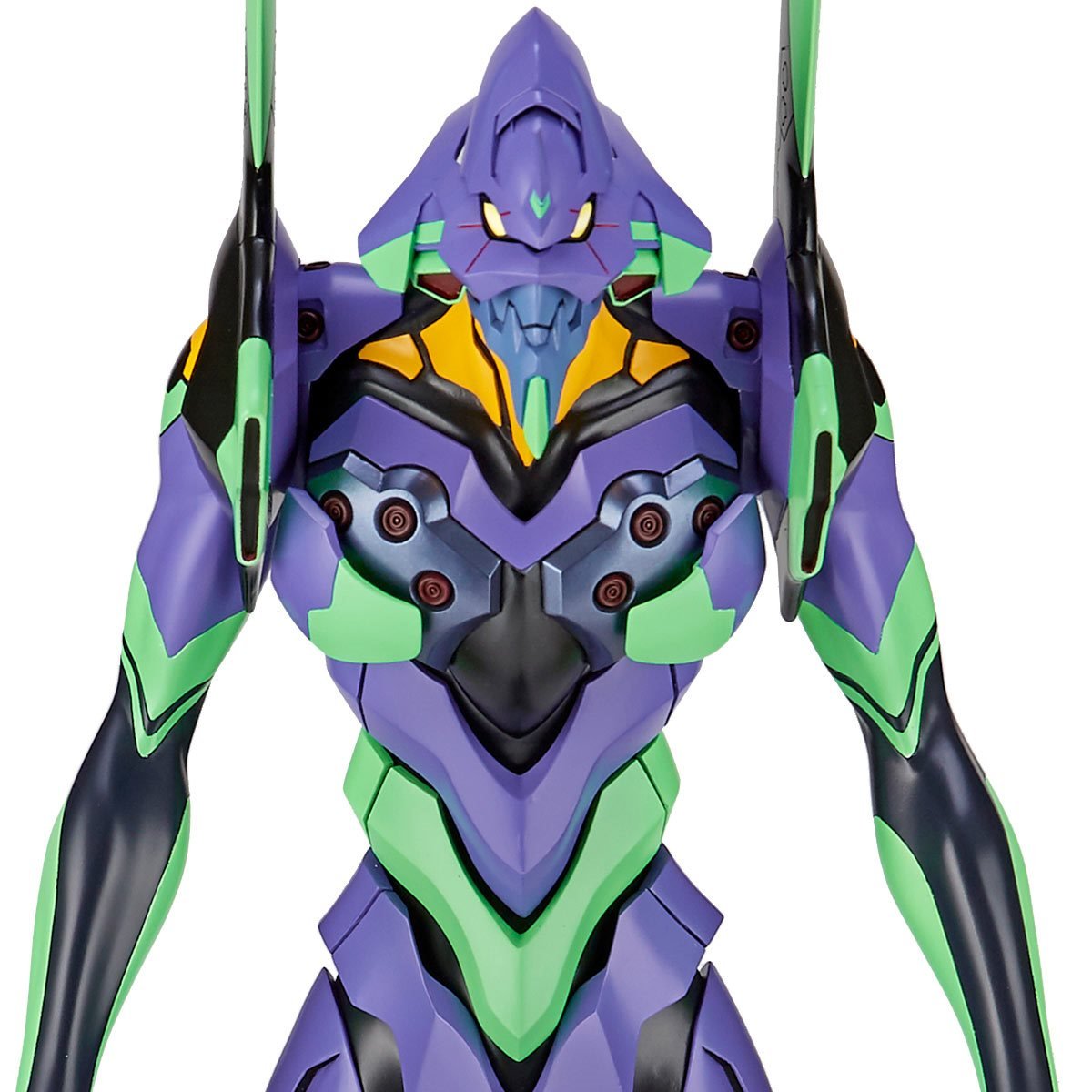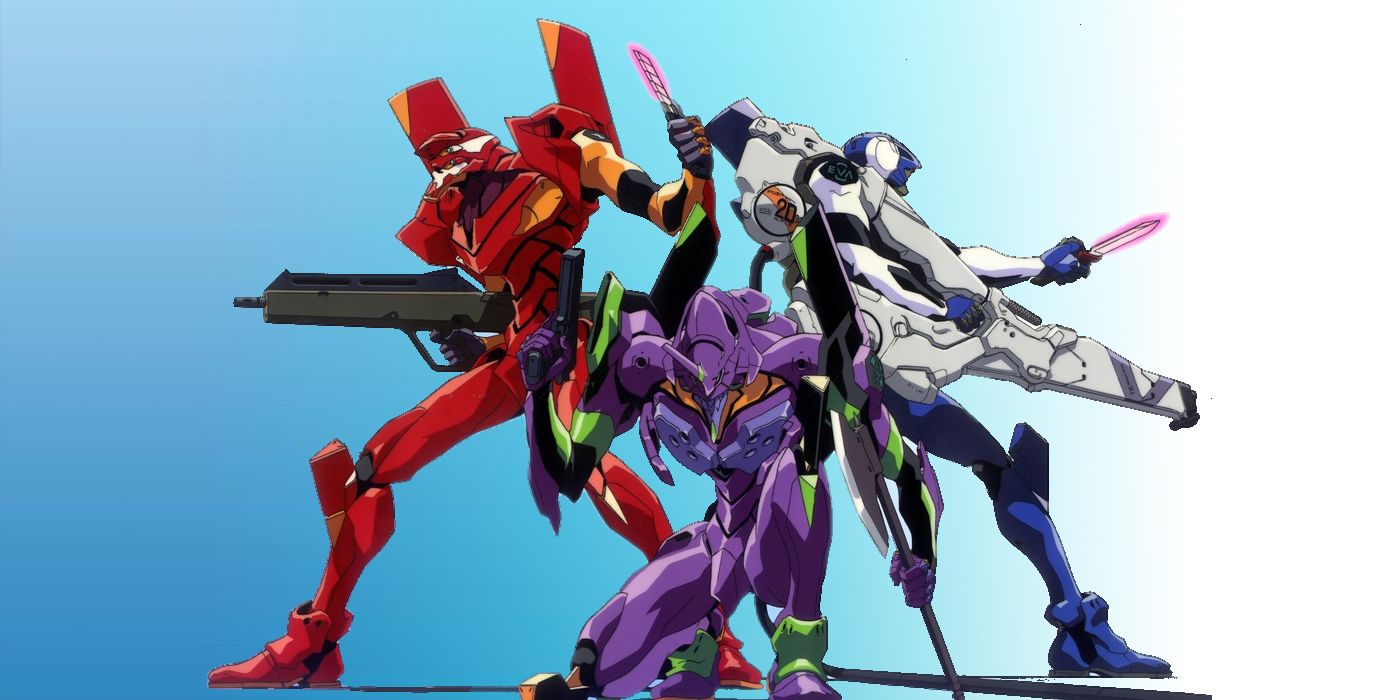Eva Ronaldo: Unpacking The Enduring Legacy Of Evangelion's Cultural Impact
When we hear "Eva Ronaldo," it's easy to think of something truly iconic, a name that echoes with unparalleled skill and unforgettable moments. Yet, for many, the "Eva" part of that phrase immediately brings to mind a different kind of legend, a cultural phenomenon that has shaped animation and storytelling for decades. We're talking, of course, about Neon Genesis Evangelion, a series that, much like a superstar athlete, has left an indelible mark on its field, sparking conversations and inspiring countless fans across the globe.
This isn't just about giant robots fighting strange creatures; that's only part of the story, you know. Evangelion, or EVA as it's often called, digs much deeper, exploring the human mind and what it means to connect with others. It's a show that has, in some respects, always pushed boundaries, making people think and feel in ways few other series ever have. The way it blends action with really profound ideas is, actually, quite something.
So, today, we're taking a closer look at what makes Evangelion such a lasting icon, a true "Ronaldo" in its own right within the world of anime. We'll explore its complex themes, its groundbreaking style, and the personal journey of its creator, Hideaki Anno, through the lens of this truly unique series. It's a story that, very often, feels both personal and universal, and we'll unpack some of its most fascinating aspects.
Table of Contents
- Key Facts About Neon Genesis Evangelion
- Beyond the Battles: What is Evangelion Really About?
- The True Meaning of "EVA" and Its Deep Roots
- Human Connection Over Monster Fights
- Psychology, Philosophy, and the Stream of Consciousness
- The EVA Units: Restraints, Power, and Regeneration
- The Purpose of the Armor
- Iconic Confrontations: The Seventh Angel
- The Story's Evolution: From TV to "Goodbye"
- The Original TV Series and End of Evangelion
- The New Theatrical Films: Anno's Personal Journey
- Hideaki Anno: The Visionary Behind the Legend
- A Creator's Reflection
- Aesthetic Choices That Defy Time
- Evangelion's Enduring Cultural Footprint
- Frequently Asked Questions About Evangelion
- Final Thoughts on a Cultural Icon
Key Facts About Neon Genesis Evangelion
| Aspect | Detail |
|---|---|
| Original TV Series Release | October 1995 |
| Creator/Director | Hideaki Anno |
| Genre | Mecha, Psychological Drama, Post-Apocalyptic |
| Core Themes | Human connection, depression, existentialism, religion, self-acceptance |
| Notable Elements | EVA Units, Angels, NERV, Human Instrumentality Project, Dead Sea Scrolls |
| Key Developments | TV series, End of Evangelion film, Rebuild of Evangelion film series |
Beyond the Battles: What is Evangelion Really About?
Many people first come to Evangelion expecting just another giant robot show, you know. But what they find is something far more intricate, a story that uses the backdrop of massive machines and alien threats to explore much deeper human questions. The show's true heart beats with themes of personal struggle and how we relate to each other, which is, actually, pretty rare for a mecha anime.
The True Meaning of "EVA" and Its Deep Roots
The name "EVA" itself holds a lot of meaning, and it's not just a cool-sounding acronym. It's, in fact, tied to the biblical figure of Eve, which is quite interesting. The series, you see, plays with many religious concepts, though often in a way that's more about visual flair and sparking thought than strict adherence. It's, like, a bit of a mishmash of ideas, just for the thrill of it.
At the core of the story, you'll find something called the Dead Sea Scrolls. These aren't just random props; they serve as a kind of newly discovered "Gospel" within the story's world. They guide the events and reveal hidden truths about the Angels and humanity's fate. This use of religious texts, even if it's a bit "ghostly" or just for effect, certainly adds to the show's mysterious and profound atmosphere, you know.
Human Connection Over Monster Fights
The common idea that Evangelion is about people fighting monsters is, in some respects, only half the picture. The real conflict, the one that really matters, is between people themselves. The giant robots, the EVA units, are just a way to tell this deeper story. This approach was, actually, quite fresh for its time, using a popular genre to talk about something else entirely.
The show really explores the pain of loneliness, the difficulty of opening up, and the fear of getting hurt by others. It's about finding your place in the world and, more importantly, finding connection. So, while you see epic battles, you're also seeing characters grapple with their inner demons and try to understand each other, which is, honestly, a very human thing.
Psychology, Philosophy, and the Stream of Consciousness
Evangelion is packed with ideas from psychology and philosophy, making it a very rich experience. The way it shows characters' thoughts and feelings, often through a "stream of consciousness" style, was quite ahead of its time. This makes the show feel very personal, almost like you're inside the characters' heads, which is, sort of, a powerful way to tell a story.
It touches on things like the nature of identity, the meaning of existence, and the pain of human interaction. The show doesn't always give easy answers, which, you know, can be a bit challenging for some viewers. But that's part of its lasting appeal; it makes you think and discuss, which is, arguably, what great art does. You can learn more about Evangelion's deep themes on our site.
The EVA Units: Restraints, Power, and Regeneration
The EVA units themselves are a central part of the series, yet their true nature is, actually, quite surprising. What looks like armor is, in fact, a set of restraints, designed to hold back the immense, raw power these beings possess. This means that a single EVA unit often struggles against an Angel; it typically takes several working together to stand a chance, which is, really, a tough situation for the pilots.
The Purpose of the Armor
So, the armor isn't there to protect the EVA units in the usual sense. Instead, it's a way to keep their incredible strength from running wild. This idea flips the usual giant robot trope on its head, making the EVA units feel both powerful and, in a way, vulnerable. It's a clever bit of storytelling that adds another layer of tension to every fight, you know.
This design choice also hints at the deeper themes of control and freedom within the series. The pilots, too, are constrained, both physically within their cockpits and emotionally by their pasts. It’s a recurring pattern, this idea of being held back, that runs through the whole show, which is, honestly, quite thought-provoking.
Iconic Confrontations: The Seventh Angel
The battles in Evangelion are often brutal and visually striking. Take the fight with the Seventh Angel, for example. It was a real "one-two punch" kind of moment, where the Angel split into two bodies, making things much harder for the EVA units. Unit-02, in a memorable scene, ended up "elegantly" impaled upside down, and Unit-01, well, it joined in the upside-down fun, too.
Even after taking a beating and getting hit with an N2 mine, the Seventh Angel needed almost a week to recover its strength. This shows just how tough these creatures were, and how much the EVA units and their pilots had to give. These fights are, you know, not just about spectacle; they show the immense cost of these conflicts, which is, very often, quite high.
A particularly significant moment happens when EVA Unit-01 consumes the S2 Engine of the Fourteenth Angel. This act grants it the ability of self-regeneration, making it virtually unstoppable. This event, honestly, changes everything for Unit-01, giving it a new level of power and, in a way, independence. It's a pivotal point in the series, showing the EVA units evolving in surprising ways.
The Story's Evolution: From TV to "Goodbye"
The story of Evangelion has, honestly, seen many versions and interpretations over the years. From its initial television run to the big screen, the narrative has grown and shifted, reflecting, in some respects, the creator's own journey. It’s a story that, very often, feels alive, changing with the times.
The Original TV Series and End of Evangelion
After the original TV series wrapped up, the story, for a while, seemed to be done, you know. But then came The End of Evangelion (EOE), which offered a different, perhaps more definitive, conclusion. This film was, arguably, a second version of the story, giving fans a new way to understand what happened to Shinji and the world of EVA.
Later, around 2003, the TV version got some updates, mostly to smooth out the pacing of the later episodes, which, you know, felt a bit rushed at the time. This "remastered" version helped make the story flow a bit better, giving viewers a more consistent experience. It shows how much care went into perfecting the narrative, even years later.
The New Theatrical Films: Anno's Personal Journey
The more recent theatrical films, known as the Rebuild of Evangelion series, are, in a way, a whole new chapter. They represent a kind of reconciliation for Hideaki Anno, the creator. It's been described as an older Anno making peace with his younger self, moving from a story that was, honestly, quite depressing to one that offers a sense of healing.
When Shinji Ikari says "Goodbye, all Evangelions" in the final film, Thrice Upon a Time, it's more than just a character's farewell. It feels like we, the audience, are also saying goodbye to that part of ourselves that, since 1995, might have been hiding in an "EVA cockpit," afraid to face the world. It’s a moment of release, a truly powerful and, in some respects, very personal message from the creator.
Hideaki Anno: The Visionary Behind the Legend
The heart of Evangelion, its central ideas and unique feel, is deeply connected to Hideaki Anno himself. He's a self-described "otaku," someone who loved tokusatsu (live-action special effects films) and science fiction, almost like a big kid lost in his own imaginative world. His work, you know, often reflects his own inner thoughts and struggles, which is, honestly, quite brave for an artist.
A Creator's Reflection
Anno's personal state of mind is, actually, a core part of the series. The show becomes a mirror, reflecting his own journey, especially his struggles with growing up and connecting with others. This makes Evangelion feel incredibly raw and authentic, as if you're watching a piece of the creator's soul laid bare. It's a very human touch that, in some respects, sets it apart.
The many mysteries that Evangelion has left us with over the past 25 years are, you know, part of its charm. People often compare Anno to filmmakers like James Cameron, because both have a habit of making fans wait with repeated release date changes. These delays for the films, in a way, just prove how much passion and detail goes into every part of the Evangelion universe. It's a slow burn, but, honestly, worth the wait.
Aesthetic Choices That Defy Time
The visual style of Evangelion was, honestly, incredibly forward-thinking for its time. The mechanical designs, the logos, the patterns, the fonts, the way scenes are set up, the color palettes, the costumes, the props – all of it screamed 90s style. Yet, you look at it today, and it doesn't feel old or out of place in modern sci-fi works, which is, very often, a sign of true genius.
This timeless aesthetic is, truly, one of the reasons the series remains so popular. It captured a certain feeling and presented it in a way that still resonates, even decades later. It's a testament to the vision of Anno and his team that the show's look still feels fresh and impactful, which is, really, quite remarkable.
Evangelion's Enduring Cultural Footprint
The journey of Evangelion to a wider audience, especially its initial introduction on television, is, in some respects, a bit hazy. Information about it is quite scarce, but it's thought that its arrival on TV might have been something of an accident. There are, actually, a couple of ideas about why it was chosen for broadcast back then.
One idea is that it was a "no-questions-asked" kind of choice; whatever was popular in Japan at the time, they just brought it over. Another thought is that there was, perhaps, a specific reason at that moment, though details are, honestly, hard to come by. Either way, this seemingly accidental introduction helped launch a series that would become a cultural touchstone, which is, truly, quite amazing.
The impact of Evangelion goes beyond just anime fans. It has influenced countless other works, from animation to video games and even fashion. Its complex characters, its deep themes, and its unforgettable visuals have, very often, inspired creators and audiences alike. It’s a legacy that continues to grow, showing just how powerful a story can be.
To really appreciate its lasting influence, one might consider how much discussion and analysis it still generates today. People are still talking about its meanings, its endings, and what it all means for them personally. This ongoing conversation is, honestly, a huge part of its continued "star power," much like a legendary figure who keeps people talking for years. We encourage you to link to this page for more detailed discussions on its impact.
Frequently Asked Questions About Evangelion
Here are some common questions people have about Neon Genesis Evangelion:
Is EVA meant to be "Eve" from the Bible?
Yes, the name "EVA" is, in fact, strongly linked to the biblical figure of Eve. The series uses many religious ideas and symbols, including concepts from the Bible and the Dead Sea Scrolls, to add depth and mystery to its story, you know.
What is the main message of Evangelion?
The main message of Evangelion often comes down to human connection and self-acceptance. While it has giant robots and alien threats, the core story is about characters struggling with loneliness, fear of intimacy, and the challenge of understanding both themselves and others. It's about finding the courage to reach out, which is, honestly, a very powerful theme.
Why is Evangelion considered so influential?
Evangelion is influential for many reasons. Its groundbreaking visual style, complex psychological themes, and unconventional storytelling pushed the boundaries of what anime could be. It dared to explore darker aspects of the human condition and left many questions unanswered, sparking years of discussion and inspiring countless creators. Its aesthetic choices, too, were, actually, very ahead of their time, which is, truly, quite impressive.
Final Thoughts on a Cultural Icon
The world of Neon Genesis Evangelion is, truly, a remarkable place, full of deep ideas and unforgettable moments. It's a series that, much like a legendary athlete, has carved out its own unique space in cultural history, continually sparking conversations and captivating new generations. Its ability to blend thrilling action with profound personal struggles is, in some respects, unmatched.
So, whether you're new to the series or a long-time fan, there's always something new to discover or reconsider within its intricate layers. It's a story that asks you to think, to feel, and to perhaps even look at your own life in a different way. We invite you to revisit this classic, or perhaps experience it for the first time, and see for yourself the enduring impact of this truly iconic work. You might find something that, very often, stays with you for a long time.
For more insights into the creation and impact of such groundbreaking anime, you might want to check out resources like

Rebuild of Evangelion Mega Sofubi Advance EVA Unit-01

Evangelion: Every EVA Unit from the Original Series Explained

Eva Elfie Net Worth: A Deep Dive Into Her Success And Earnings